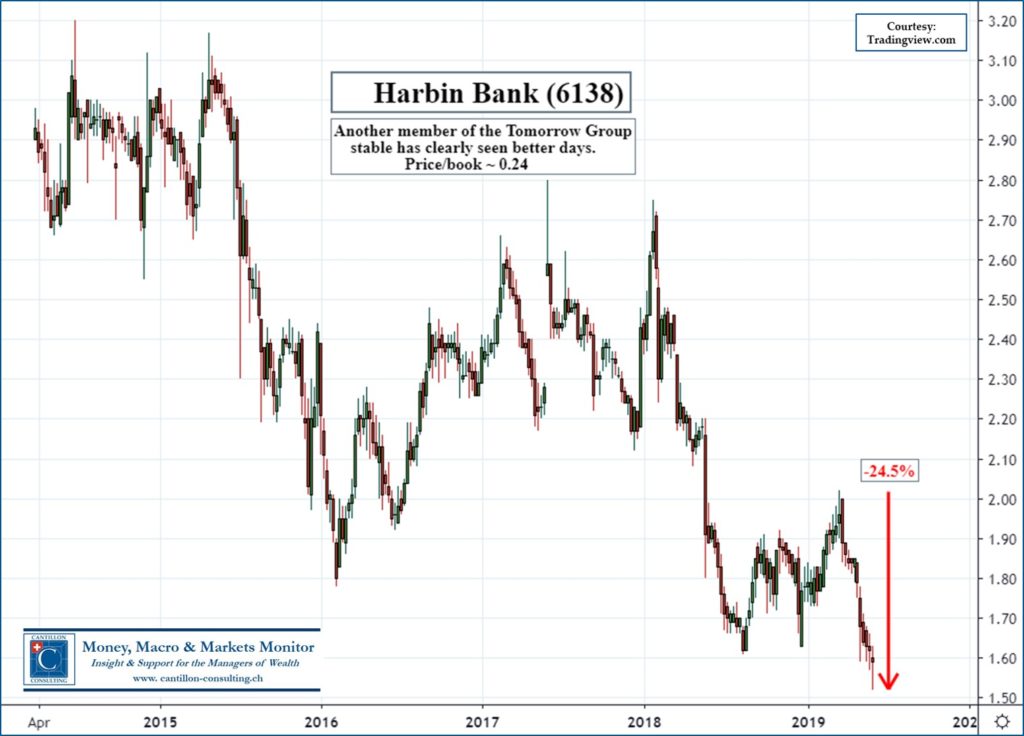Back in 2017, a minor diplomatic spat erupted when seemingly credible allegations were made that billionaire Xiao Jianhua had been abducted by agents of Chinese state security from the Four Seasons hotel in Hong Kong where he was staying. Indistinct video showed the figure, said to be Xiao under the blanket covering his head, being spirited away in a wheelchair en route to being smuggled back to the mainland for interrogation. [First Published May 28th]
Xiao – who has not been seen since, but whose subsequent fate is the subject of occasional rumour and semi-official leak – is presumed to be ‘helping the authorities with their enquiries’, as the phrase has it, as they try to untangle the complex of interwoven finances which comprises the Tomorrow Group of which he was the head.
Xiao, widely reputed to be a so-called ‘White Glove’ fixer for certain ‘Princeling’ members of Jiang Zemin’s political faction, first emerged onto the scene in the great wave of reforms and ‘opening up’ launched in the late 1990s. He had spent the succeeding two decades building up an almost unfathomable nest of holding companies and cross-shareholdings whose assets, at their peak, local estimates put at some CNY3 billion (~$430 billion) and which involved control over forty entities ranging from banks, insurance companies, securities dealers, and trust companies to industrial concerns – among them a certain Baoshang Bank.
The twin currents of President Xi Jinping’s campaign to use his anti-corruption drive to neutralise the influence of competing factions and the need to rein in some of the worst excesses committed by several of China’s burgeoning holding companies, such as HNA and Ambang Insurance, were clearly at the root of the assault on the Tomorrow Group which has been forced to divest several hundred billions of yuan in assets in the period since the head man’s involuntary repatriation.
Last week, the result was the disquieting news that Baoshang Bank – perhaps the lynchpin of Xiao’s financial manoeuvres – had been taken into administration by the authorities, the first such seizure of a bank since Hainan Development Bank at the height of the Asian financial crisis, twenty years ago.
In the wake of the official declaration of this move, comments began to appear on the Chinese internet which contained speculations – being swiftly expunged by the nation’s army of media censors – that other banks were also facing difficulties.
It should hardly need stating, but the one thing a highly-leveraged, inherently illiquid, fractional reserve bank cannot withstand is a ‘run’ and the one self-fulfilling fear of its depositors is that they will be too late to react to one.
As the news spread across the international newswires, a great deal of highly adverse publicity was generated as people only too happy a week or two before to play up the value of those Chinese companies about to be included in the updated benchmark MSCI indices belatedly entertained second thoughts about the wisdom of blindly ploughing into the Middle Kingdom’s opaque institutions and putting their clients’ funds at the mercy of that country’s highly suspect concept of corporate governance.
Given its peculiar provenance, Baoshang itself – amusingly nominated by Euromoney in 2017 as a rising star of Asian Fintech – might be seen as something of a special case but the confluence of an economic slowdown of unknown severity, the well-known vulnerabilities of a vastly over-leveraged system which is rife with political interference, and the authorities’ record of ham-fisted, stop-start intervention are evidently beginning to unsettle investors.
At 40% of the total profits reported by A-share companies, banks and financial institutions in general make an inordinate share of earnings in China (a loose American equivalent is 25%), though these, too, are further greatly concentrated in the state-owned giants and so-called ‘policy banks’ who dominate the system.
Smaller lenders have seen the most rapid growth over the past decade of runaway expansion but have been badly squeezed both by regional industrial and commercial woes and a tightening of the rules regarding their funding. Indeed, part of the current angst affecting prices of their securities may be related not just to Baoshang debacle, but to a declaration of intent issued two weeks ago that the widespread abuse of sham structured product deposits would henceforth be subject to intense scrutiny.
This is no small matter, the outstanding scale of such instruments – which pretend to enhance returns via the options embedded in them, but which are often little more than a camouflage for the payment of unauthorized high interest rates – has exploded in recent quarters, swelling by CNY4.25 trillion ($615 billion) since the end of 2017 and by CNY1.6 trillion ($260 billion) in the first three months of this year alone.
In what was seen as a move to assuage market fears, the PBoC undertook a reverse repo liquidity injection today [May 28th], adding some CNY70 billion on a net basis to the pool.
One can only hope that such policies are seen as sufficient.
.

